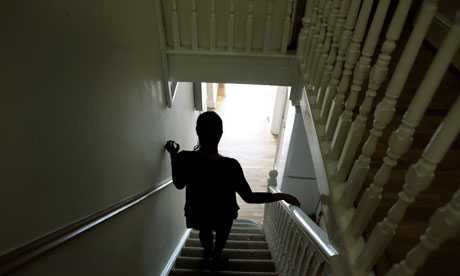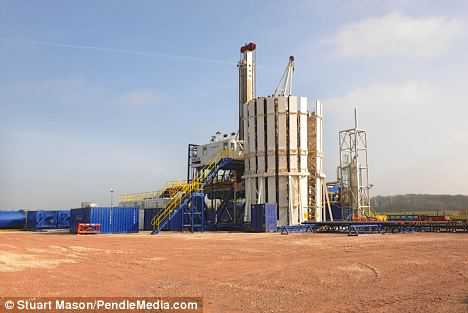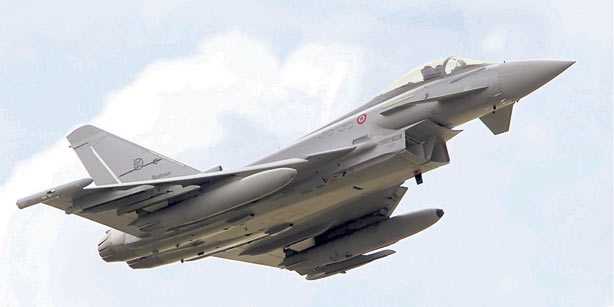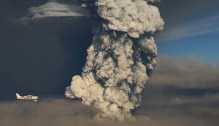Thousands of trafficked children are being abused and murdered by their captors, but UK officials remain indifferent and sceptical
Mark Townsend, crime correspondent

They are vulnerable, abused and, far too often, left to fend for themselves thousands of miles from home. Earlier this month, a petition signed by 735,889 Britons was handed into 10 Downing Street demanding greater protection for the thousands of victims of child trafficking in our towns and cities. But amid a growing furore over the government’s failure to prioritise the issue, evidence is mounting that when it comes to looking out for trafficked juveniles, those in a position to act are guilty of culpable negligence.
An Observer investigation reveals that even in Britain’s care homes, where identified victims of trafficking might expect to feel safe, the story is frequently one of neglect, indifference and sometimes outright scepticism towards their claims.
In a disturbing number of cases, children taken into local authority care and suspected of being trafficked are going missing, many having fallen back into the hands of their tormentors. A freedom of information request revealed that 173 unaccompanied asylum-seeking children, all vulnerable to traffickers, went missing from Kent council’s care homes in 2009. The same local authority last week refused a request by senior managers to set up a child trafficking working group. Meanwhile, the numbers of the missing mount, shaming the local authorities who owe abused and exploited children a duty of care.
Hien, from Vietnam, arrived at Heathrow in 2009 as an unaccompanied child. Charity workers now believe that his family had been forced to agree to him being trafficked to Britain, but at the airport the British authorities got to him first. He was initially placed with foster carers and 10 weeks later the 14-year-old moved into supported lodgings. But two days after that Hien disappeared. The traffickers who had arranged his flight to the UK had caught up with him.
Hien resurfaced six months later, when police raided a cannabis factory in the capital. According to campaigners, along with sexual and domestic servitude, forced labour in cannabis factories is one of the most common forms of exploitation of trafficked children.
Hien was arrested on drug charges and appeared before a youth court. Only later, when sent to a young offenders institute and assessed, did it emerge that the teenager was a victim, not a criminal. As a result he was placed into local authority care 15 months ago. A fortnight later he went missing again.
For some juveniles it is a struggle even to get their story believed. Ling came to the attention of police and immigration officials during a raid on a Chinese restaurant in Birmingham. According to her testimony, she had been trafficked from Fujian province two years earlier and forced to work in a brothel. Raped repeatedly and beaten daily, Ling was warned she’d be killed if she tried to escape. The orphaned teenager told officials her life was in danger. Although she should have been placed in local authority care, she was released.
A year later she was re-arrested for holding a fake passport. This time officials passed her details to the national referral mechanism, the government’s system for identifying and protecting suspected trafficking victims. The 16-year-old warned social services that her captors would come for her. During this period, witnesses report a Chinese man loitering outside the building where she lived. In June 2009, the Home Office wrote to Ling explaining they did not believe she had been trafficked. Four days later she disappeared. There has been no recorded sighting of her since.
It is unlikely that Ling and Hien will ever be found. Most who go missing, go missing for good. Only occasionally do they resurface. Some victims are traded between gangs for paltry sums. “Many trafficked children are not perceived to be valuable,” said Christine Beddoe, director of child protection charity Ecpat UK. Children can fetch as little as £300, although Scotland Yard believes some have been sold for as much as £16,000.
Many of the missing are tortured and some undoubtedly murdered, say campaigners. A trafficked five-year-old boy from Nigeria was finally identified several weeks ago, 10 years after being killed and dumped in the River Thames.
According to campaigners, this cycle of neglect and confusion which puts children back in extreme danger could be avoided by the introduction of a simple measure. Experts believe that providing each trafficked child with an independent advocate – a child guardian – to ensure they get access to legal and support services would protect them from the predatory traffickers that target children’s care homes.
Scotland is currently piloting the guardian system. According to Gary Christie, the head of policy and communications at the Scottish refugee council, the scheme allows the professionals engaged with a trafficked juvenile to “better understand the safety issues around that young person”. But 10 days ago, immigration minister Damian Green rejected the idea of extending it to England, telling parliament that child guardians would “bring no extra benefit to the child”, although he admitted during the same debate that there were “severe difficulties” preventing trafficked children in care from disappearing.
It’s the kind of response that outrages the likes of Anthony Steen, the former Tory MP who heads up the Human Trafficking Foundation in the UK. According to Steen: “Mafia gangs circle children’s homes waiting to remove victims.”
Despite such warnings, the government and local authorities appear reluctant to take a more pro-active stance on the children disappearing from Britian’s care homes into the hands of traffickers. No central database exists of suspected or confirmed child trafficking cases. Local authorities do not collate data on numbers of missing children from care, let alone record efforts to find them. No national study into the volume of trafficked children in care has been ordered. The National Register for Unaccompanied Children, set up in 2004 to chronicle and help protect vulnerable juveniles, was shut down last month. Fiona Mactaggart, the shadow minister for women and equalities, says “trafficked children disappear from local authority care every week” and are never found.
Of the statistics that do exist, most corroborate claims that at least half of all trafficked youngsters in state care disappear. Of 80 children identified as trafficked over an 18-month period in northern England, 56% went missing, according to one study.
Human rights campaigner Michael Korsinsky, of the Helen Bamber Foundation, cited cases where traffickers tried to pick up children on false pretences within two hours of their arrival in care. One local authority admitted to campaigners it recently lost more than 20 Vietnamese children inside 24 hours. Two of them left a farewell note in their room, explaining that unless they left their sister would be forced into prostitution. Vietnamese are among the most frequently trafficked into the UK. A restricted government document revealed last year that, nationwide, 48% of Vietnamese children in care had disappeared.
A Home Office source in Croydon said some traffickers even stitched sim cards under a child’s skin, ordering them to insert it within a phone on a given date so they could be tracked down.
During the case of trafficker Kennedy Johnson, who brought in 40 Nigerian children through British airports, the court heard that he targeted council care homes before forcing the girls into the sex trade. His victims are still appearing two years after Johnson was jailed. Fresh victims enter the UK all the time. A Barnado’s briefing reveals how, two months ago, 25 trafficked individuals leapt from a lorry after passing through a north of England port. Eight were juveniles, two of whom were placed in supported lodgings and went missing within 24 hours. Another three children were placed in foster care and vanished after several weeks. Just one has been found.
Meanwhile, the policing resources allocated to tackling child trafficking are risibly small. Senior officers have conceded privately to the Observerthat the Home Office makes little attempt to prioritise the issue. The country’s principle human exploitation unit, Scotland Yard’s specialistcrime directorate-9, does not deal with child trafficking. Instead the issue falls under SCD-5, the Met’s child abuse command, and more specifically Operation Paladin, which safeguards children at London’s ports by investigating and advising on child trafficking matters. SCD-5 currently has only five dedicated officials. Its former head, detective inspector Gordon Valentine, retired on Friday and his replacement has not been granted a dedicated role in Operation Paladin.
This tiny team is dealing with a phenomenon that, although notoriously difficult to quantify, is undoubtedly growing. A three-month “scoping” project at Heathrow airport detected 1,800 unaccompanied children, half aged under 11.
Valentine is not the only leading figure to have left the fight against trafficking. Whitehall sources say that practically the entire original Home Office team on trafficking has now gone. Three weeks ago the all-party group on human trafficking convened to hear from senior policing official Vic Hogg, only to be told he too had left.
Elsewhere, the Child Exploitation and Online Protection Centre (CEOP), the sole government agency to produce reports on child trafficking, has disbanded its child trafficking unit. Only a quarter of police forces have adequate child protection units. One of the most successful initiatives tackling child trafficking, Operation Golf, which disrupted extensive rings operating from Romania, was wound down at the end of last year and publicly there are no plans to resume operations.
Yet more resources, rather than fewer, are required, along with more understanding of the nature of the crime. Prosecutions for child trafficking are notoriously rare, with youngsters typically too fearful of authority to provide sufficient testimony. “If you asked 100 trafficking victims, only two or three would admit to being trafficked,” said one campaigner. One child trafficked into the UK from west Africa said she regretted telling police about her predicament. Beaten routinely during a life of domestic servitude after arriving in Birmingham aged 10, Abby said the failure to prosecute left her vulnerable to reprisal from her traffickers. “The police don’t realise that you put your life in danger to help them.”
Others are trafficked at such a young age they have difficulty recalling the details required for a prosecution. Sarah had not seen white people before when she arrived in the Midlands, aged 12, from Ghana, escorted by her auntie after her parents separated. She too was quickly ensconced in a life of domestic slavery, forced to care for five kids. She was never allowed outside. Then things took a turn for the worse. She describes getting “slapped” a “proper African knock”. They moved to London and that was when the men began arriving.
“That is when I started getting trouble. I was getting beaten by the men, I was smacked and raped. They tied me up and did things.” She was 13. Every time she was raped she “kept bleeding”. Sarah added: ” I was just screaming and saying that I didn’t want to do it. The auntie was saying, ‘Just relax, it doesn’t hurt, it doesn’t take that long.’” Eventually she was “chucked out”. With nowhere to go she survived on the streets for nine months before a couple took her in. She still lives with them now.
For those young people taken into the care of the state, the nightmare should be over. But the experience of Ling, Hien and hundreds of others reveals that the level of care for juveniles in their situation is often patchy and sometimes downright negligent. A 2008 report by the Conservatives, then in opposition, described child trafficking as “an escalating problem with a weak support structure in place”. One year into the coalition government, ministers have shown precious little sign of doing anything about it.
HUMAN CARGO
■ An estimated 1.2 million children are trafficked worldwide each year.
■ 161 countries are reported to be involved in human trafficking, either as a source, transit or destination country.
■ 95% of victims experienced physical or sexual violence (based on data from selected European countries).
■ 43% of victims are used for forced commercial sexual exploitation, of whom 98% are women and girls.
■ 32% of victims are used for forced economic exploitation, of whom 56% are women and girls.
Source: UN Global Initiative to Fight Human Trafficking (Gift)
www.guardian.co.uk, 28 May 2011






